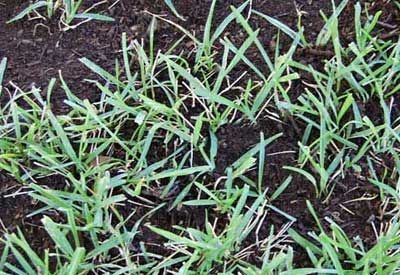The arrival of summer reminds us that it’s not too late to nourish your lawn the healthy way with organic compost from Planet Natural. As lawn-spraying services expand their grip on suburbia it’s important to remember that using organic practices to encourage grass in your yard protects your pets and family from harmful chemical fertilizers and herbicides. Spreading compost on lawns now — not too deep; you don’t want to smother the grass blades — will help it stay lush and weed-free by nourishing the soil beneath it. It will greatly increase beneficial microbial activity in your soil, benefiting your lawn even more. And it’s a good way to treat the spots in your lawn that are thin, brown and unhealthy. From Organic Lawns, Healthy Soil:
“Established lawns benefit greatly from a single yearly application of compost, even more greatly from two. Spreading compost on your lawn isn’t as easy as pushing your old chemical fertilizer spreader around. Depending on your lawn’s size, a wheel barrow and a shovel may be the best way to distribute compost around your yard, followed by a good raking (a push broom will also work) to distribute it more evenly. Though hard to find and troublesome to use effectively, a compost wheel or peat spreader can distribute compost across small yards though they can be difficult to push and need to be refilled often.
However you spread compost on top of an existing lawn, don’t apply too much. Compost should be spread no more than a half-inch deep. The idea is not to bury grass blades, smothering them and keeping them from sunlight. If that means less than a half-inch of compost, then reduce your application. You want grass blades exposed to oxygen and sunshine. Applying compost to problem areas will also help cure them.”
Adding compost will help your lawn’s soil retain moisture during the long hot months of summer, keeping your grass greener longer. That’s a good thing!












